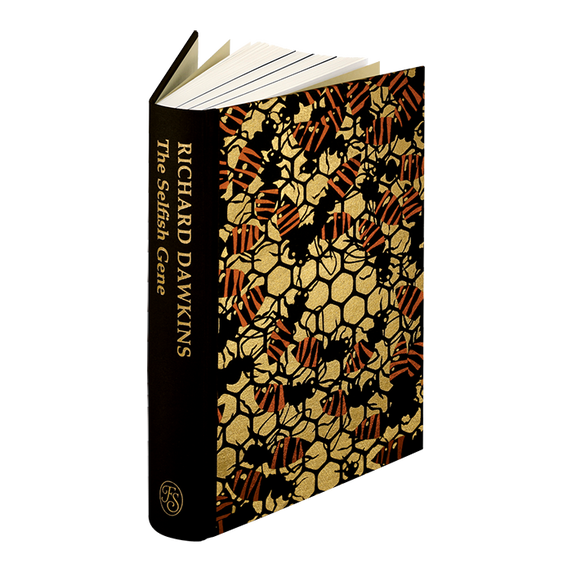
The Selfish Gene
Richard Dawkins’s startling theory propelled The Selfish Gene to international acclaim and it remains the de facto text on social development. This first illustrated edition includes 51 incredible colour photographs.
Introduced by Richard Keynes
No book has revolutionised our view of life on earth more than Charles Darwin’s On the Origin of Species. Yet its enduring popularity is a testament to the immense energy and startling simplicity with which Darwin makes his revelations.
‘One general law, leading to the advancement of all organic beings, namely, multiply, vary, let the strongest live and the weakest die’
When first published in 1859, its central theory – that the natural order was not permanent and unchanging but a gradual process of evolution – met with fierce opposition. How dare any man challenge the concept of divine creation? But the first edition sold out within a day (it has remained in print ever since), its author was declared the most dangerous man in England, and a new era in human thought had begun. The seeds of Darwin’ explosive ideas had planted themselves in his mind when, as a young scientist on a five-year voyage of exploration on board HMS Beagle, he tramped around the tropical forests of Brazil, made sketches of the fossil-packed strata of Patagonia, experienced the geological drama of the Andes, and encountered the extraordinary animal life of the Galapagos Islands. But, on his return, a fear of the probable impact of his discoveries also took root. Darwin was himself a deeply religious man and, unsurprisingly perhaps, spent 20 years in rigorous intellectual enquiry, exhaustive experiments and soul-searching before, finally, an anxiety that someone else would get there first spurred him to go public.
In its essence, On the Origin of Species is the story of how life, once begun, developed in its amazing diversity and complexity; the story of a world in which species have come and gone, adapting themselves to changing climates and environments as best they could; the story of the survival of the fittest. That it remains one of the most dazzling and influential books ever written is a testament to the immense energy and startling simplicity with which Darwin makes his revelations.
‘The theory of natural selection is a prime candidate for the title of the greatest idea ever to occur to a human mind’
- Richard Dawkins
Bound in buckram printed and blocked with a design by David Eccles
Set in Baskerville
Frontispiece and 24 pages of colour plates
448 pages
Plain slipcase
10˝ x 6¾˝
Charles Robert Darwin was born in 1809 in Shropshire. He came from a wealthy and intellectual family and he went on to study Divinity at Cambridge. He was interested in natural science from a young age, and when he was 22, he was offered a place on HMS Beagle to work as a natural scientist on voyage to South America. The Voyage of HMS Beagle (1839) was his account of the voyage and the of flora and fauna he collected. It was during this voyage that he developed many of his theories and he went on to write On the Origin of Species (1859), a book that garnered both attention and contention. Darwin died in 1882 and was given a state burial at Westminster Abbey.
